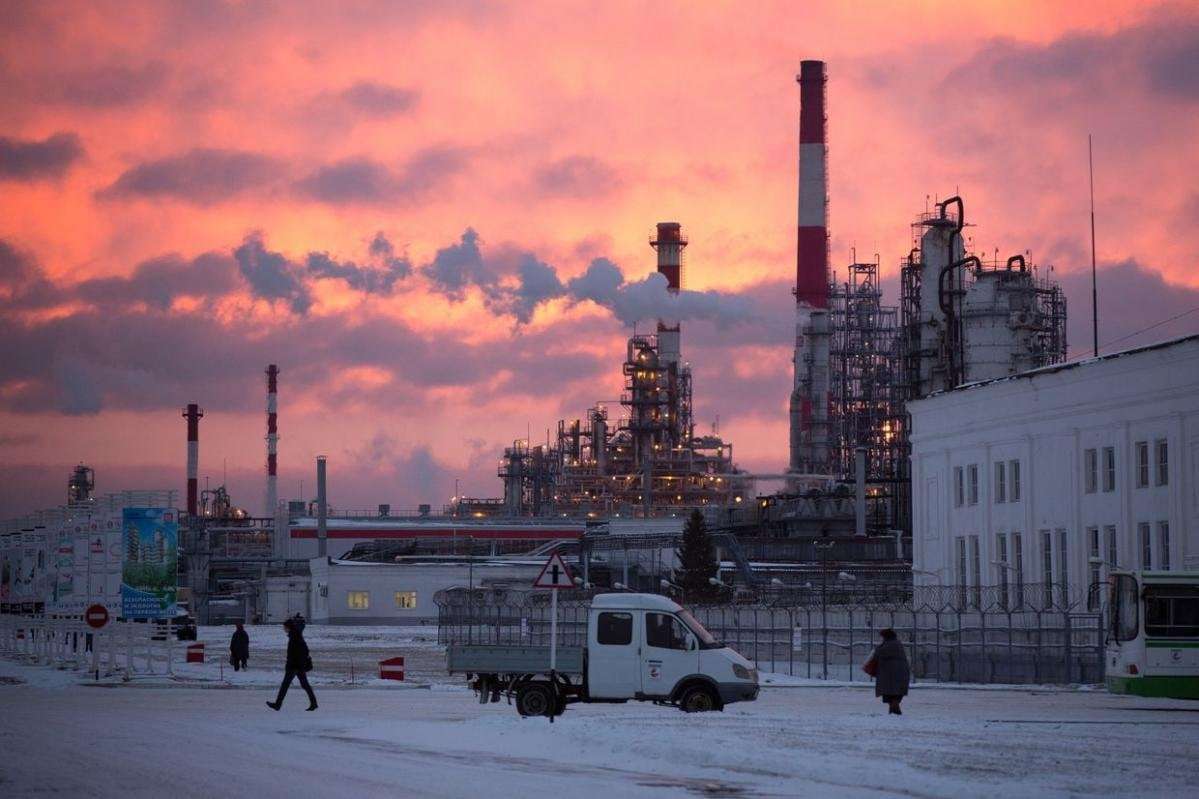U.S. Vice President Kamala Harris called on President Volodymyr Zelensky not to attack Russian oil refineries during their private meeting at the Munich Security Conference in February, the Washington Post reported on April 15, citing anonymous sources familiar with the matter.
Ukrainian strikes would raise global energy prices and invite more aggressive Russian retaliation inside Ukraine, according to Harris.
Harris' request irritated Zelensky, who "brushed off" the recommendation, the Washington Post reported.
After the Munich Security Conference, Ukrainian forces launched a series of drone strikes aimed at damaging Russia's oil industry. A total of 12 Russian oil refineries were reportedly successfully hit in multiple regions deep inside Russian territory as of March 17.
Ukraine also attacked one of Russia's largest oil refineries on April 2 in the city of Nizhnekamsk in Tatarstan, over 1,000 kilometers (620 miles) from Ukraine's border.
Zelensky neglected Harris's recommendation, as the president was uncertain whether it reflected the consensus position of the Biden administration, the Washington Post said, referring to its sources.
In subsequent weeks after the conference, Washington conducted multiple conversations, warning Kyiv. Yet, Ukrainian forces hit Russian oil refineries several times in March and April, which led to them shutting down about 14% of their capacity in the first quarter, according to Reuters calculations.
The Washington Post also reported, citing officials on condition of anonymity, that keeping global energy markets supplied to help cool inflation is "a priority for the administration, but it is also vital to sustain the support of Ukraine's war effort in Europe."
"An increase in energy prices risks dampening European support for Ukraine aid," a senior U.S. official told the Washington Post.
While the dispute over Ukrainian attacks on Russian oil refineries continues, Russia has been able to swiftly repair oil refineries hit by Ukrainian drones, Reuters said on April 15.
According to Reuters calculations, the total Russian primary oil refining capacity, idled by drones, was reduced to 90,500 metric tons per day (660,000 barrels per day) from around 123,800 tons per day (907,000 bpd) previously.
But Russia's cumulative primary oil refining capacity, put offline due to various outages and maintenances, is expected to reach 4.4 million tons in April, up from 4.1 million tons in March, Reuters reported.
U.S. Secretary of State Antony Blinken said on April 2 the U.S. has "neither supported nor enabled strikes by Ukraine outside of its territory," responding to a question from a journalist about the Ukrainian strikes on Russian oil refineries.
U.S. Defense Secretary Lloyd Austin later echoed Blinken's statement, saying that recent Ukrainian attacks targeting Russian oil refineries could have a "knock-on effect" on the global energy market.
In response to the U.S. warnings, Zelensky said in an interview with the Washington Post on March 30 that Ukraine has the right to use its own weapons with retaliatory strikes on Russian oil refineries, despite concerns from the United States.
Read also: Russia’s war effort may not be as formidable as it looks
We’ve been working hard to bring you independent, locally-sourced news from Ukraine. Consider supporting the Kyiv Independent.

Nervous-Basis-1707 on April 16th, 2024 at 16:47 UTC »
If oil prices explode then goodbye to Biden’s chance of re-election and hello to a second Trump term + the end of US aid to Ukraine. You have to think more long term and big picture when it comes to war. Striking Russian refineries right now would hurt the Ukrainians come January of next year.
petepro on April 16th, 2024 at 15:40 UTC »
It’s the same with Israel, but Israel is stronger and more independent.
Maleficent_Sand_777 on April 16th, 2024 at 13:37 UTC »
Attacking the Russian economy, especially oil infrastructure, is probably the best chance Ukraine has to win the war. Without direct NATO help they will never outright defeat the Russians on the battlefield, so their only hope is a political change in Russia. Crashing the Russian economy would break the social contract between Russians and their current government, and this could conceivably lead to a regime change. The new regime could be worse and double down in Ukraine, of course, but there is a chance they would instead withdraw. I understand the concern about the global economy being hurt by a reduction in Russian oil and gas on the market, of course, but asking Ukraine to not fight their invaders in such a potentially valuable way is putting money above thwarting an aggressor state. The United States would never limit itself in such a way when fighting a war for survival.